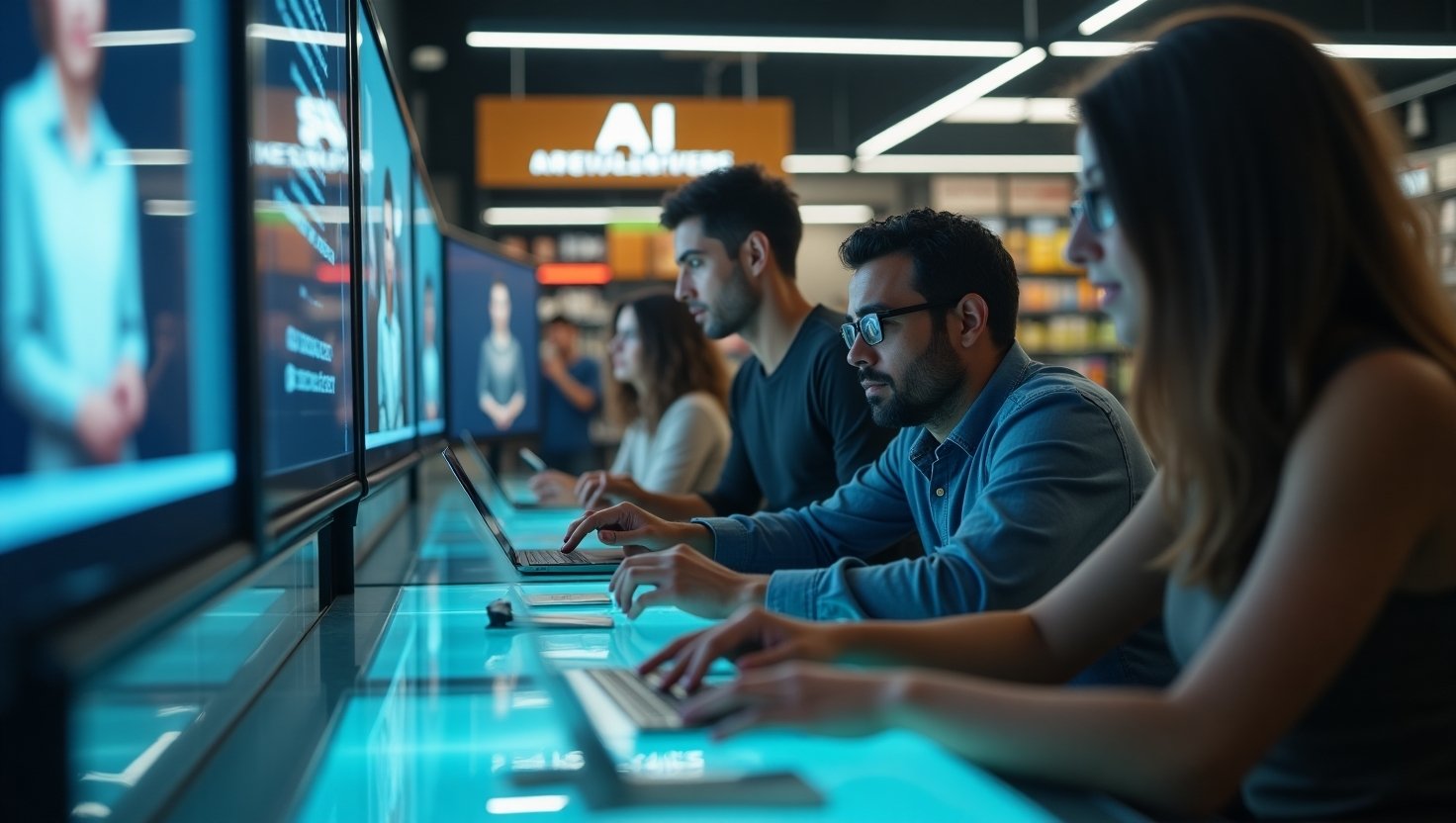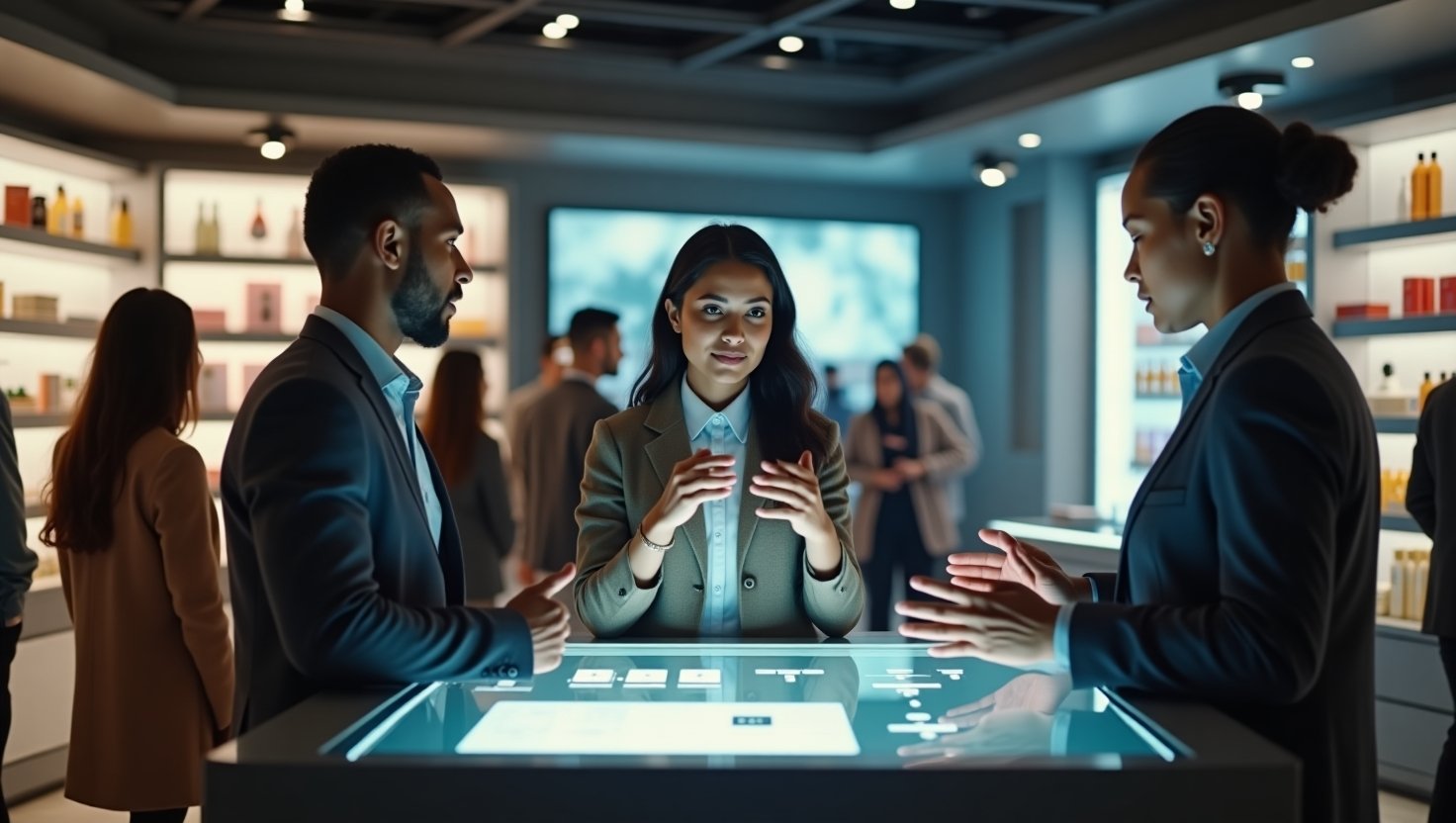AI Influencers in Retail: Transforming Marketing Strategies and Consumer Engagement
The integration of artificial intelligence (AI) into retail is more than just a technological trend—it’s a revolutionary shift that’s reshaping consumer engagement and marketing strategies. AI influencers in retail are driving significant changes, impacting everything from customer behavior to operational efficiency. This blog explores how retail giants are leveraging AI technologies and influencers to enhance brand experiences and what the future holds for AI in this sector.
The Role of AI in Transforming Retail Operations
Retailers like Dollar General and Walmart have embraced AI not just as a tool for artificial intelligence optimization but as a strategic component of their broader digital transformation initiatives. For instance, Dollar General’s appointment of Travis Nixon as Senior Vice President of AI Optimization underscores how brands are focusing on AI to improve their supply chains and merchandising operations. This move aligns with a broader industry trend toward digital transformation (source: Retail Dive).
AI’s role in retail can be likened to a successful coach guiding a sports team; it identifies areas for growth, enhances existing strategies, and can adapt plans on the fly to achieve the best outcomes. Walmart, on the other hand, is deploying AI tools to revolutionize in-store and online shopping experiences. From assisting customers in locating items to creating wish lists for events, Walmart’s consumer engagement strategies exemplify the diverse applications of AI in retail marketing (Retail Dive).
Leveraging Social Media for Consumer Engagement
The intersection of AI and influencers is pivotal in crafting compelling social media strategies. Retailers increasingly use AI-powered analytics to understand consumer preferences and predict future trends. Social media, in this context, acts as both a stage and a feedback loop. It empowers customers to engage directly with brands and allows retailers to gather insights that inform marketing strategies.
Consider the example of influencer-driven promotions. AI can identify influencers whose followers match a brand’s target demographic, thereby increasing the effectiveness of marketing campaigns. This targeted approach not only improves customer experiences by making them feel understood but also increases the conversion rates of social media-driven sales.
Future Implications and Forecasts
Looking ahead, the role of AI influencers in retail is set to expand, with emerging technologies promising even more personalized shopping experiences. Retailers are likely to integrate AI further with advanced data analytics to craft highly customized consumer journeys. As a result, consumers can expect more interactive and engaging experiences, whether online or in physical stores.
Moreover, as AI becomes more sophisticated, the ability to process and analyze vast amounts of consumer data will facilitate even more nuanced marketing strategies and improved operational efficiencies. The future of retail will likely see a seamless blend of AI-driven insights and human creativity, crafting engaging and profitable experiences for both brands and their customers.
In conclusion, AI influencers in retail are revolutionizing marketing strategies and consumer engagement. With advancements in AI technology, the retail landscape is poised for unprecedented growth and transformation. As retailers continue to innovate and incorporate AI into their business models, the potential for improved consumer experiences and increased sales is immense, setting the stage for a vibrant and dynamic future in retail.










